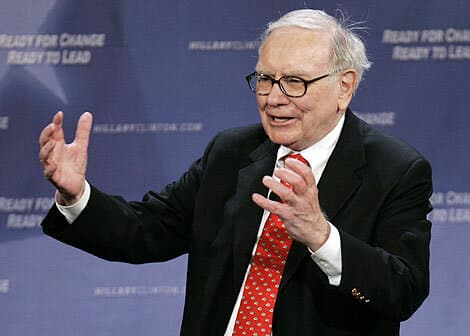Warren Buffett is synonymous with success. Most famously, he transformed textile manufacturer Berkshire Hathaway into a business empire that today owns over 60 assets in industries ranging from jewelry (Helzberg Diamonds) to insurance (Geico) to food and beverage (Kraft Heinz Foods Group). Forbes recently projected his net worth as $85.7 billion.
Top tips from Warren Buffett
Through interviews, shareholder letters, and books, Buffett has communicated his strategy for wise investing. Without a doubt, real estate investors can learn from Buffett’s tactics to improve gains and add value to their portfolios.
Lesson 1: Think Long Term
In books, articles, and interviews, Buffett repeatedly emphasizes to view investing through a long-term lens. He famously says his favorite holding period is forever. Building long-term wealth happens through buying and holding onto assets. During the Berkshire Hathaway 2017 annual shareholders meeting, Buffett discussed one the criteria applied for acquiring businesses.
“It would tend to be a business that for one reason or another we can look out five or 10 or 20 years, and decide that the competitive advantage that it had at the present would last over that period,” Buffett said.
Real estate markets fluctuations can change an asset’s value, but these fluctuations are cyclical. Holding and properly maintaining assets for 10, 20, or more years outlasts these market changes. Avoiding trends and creating a long-term strategy for the property’s long-term growth is essential.
Lesson 2: Don’t Anticipate Loss
Buffett wants his investments and acquisitions to be certain to make money. His number one rule: “Never lose money.” The second rule is “don’t forget Rule no. 1.” Furthermore, acquire real estate assets expecting to grow value and returns in the long term.
But, buying a deeply discounted property is not a guaranteed way to avoid loss. Buffett’s mindset, based on a 1989 letter to shareholders, is, “It’s far better to buy a wonderful company at a fair price than a fair company at a wonderful price.” Real estate investors can apply this philosophy with due diligence. They can do this by acquiring assets with demonstrated value and returns at a reasonable rate. However, focus on the underlying value of the asset, as prices can vary widely from market to market and year to year.
Lesson 3: Avoid Over-leveraging Assets
For the most part, Buffett prefers to avoid debt. He does believe in leveraging assets to increase gains. However, as he cautioned in a 2010 shareholder letter, leverage can be addictive. He explains that while some people have used borrowed money to become wealthy, it’s an easy way to get equally poor. Over-leveraging assets can be lethal to businesses and real estate investors, too.
“If you’re smart, you’re going to make a lot of money without borrowing,” Buffett told Notre Dame students in 1991. “I’ve never borrowed a significant amount of money in my life.”
Real estate investors learning from Buffett’s example should use caution with leveraging the value of existing assets to acquire more. Whenever possible, avoid debt. If financing is necessary, borrow only what it is needed and structure through a long-term fixed rate. And, pay down the debt as fast as possible.
Lesson 4: Reinvest Profits
As a teenager, Buffett started a pinball machine business with $25. He used the profits from the first pinball machine to buy more machines, eventually operating seven or eight machines across his town. Eventually, he sold the pinball business but he used the proceeds to launch another business.
Turning profits into personal income to fund a lifestyle is alluring. To truly acquire wealth, take Buffett’s view of long-term wealth and reinvest profits into the business. Investing gains into real estate portfolios, through property renovations or acquiring more assets, can increase long-term gains and revenue.
Warren Buffett is worth over $85.5 billion for a reason. His common-sense strategy of conducting due diligence and patience to hold assets over the long term applies directly to real estate investing. Avoiding debt and reinvesting into the portfolio help maximize returns over time. As Buffett said, “You don’t need to be a rocket scientist. Investing is not a game where the guy with the 160 IQ beats the guy with 130 IQ.” There are opportunities to learn from entrepreneurs everywhere!






